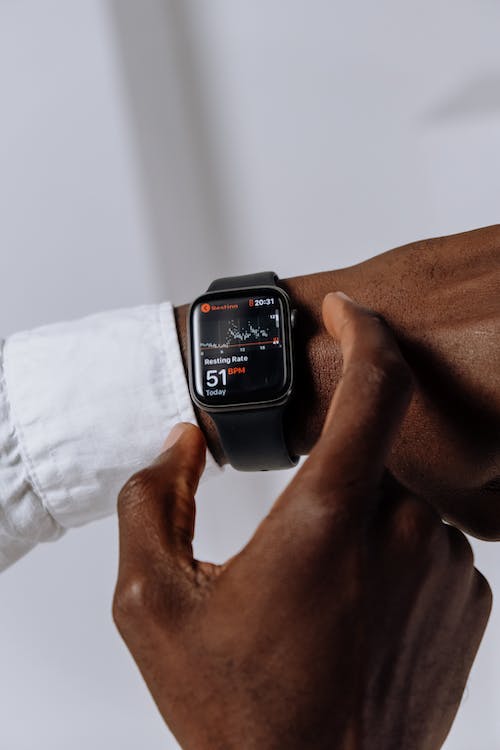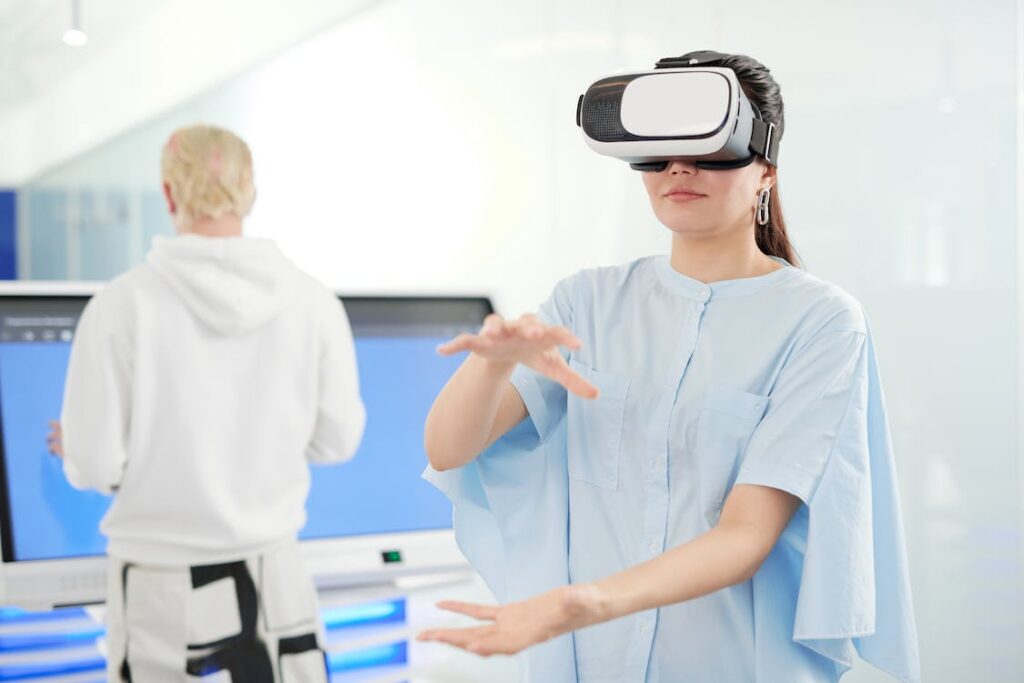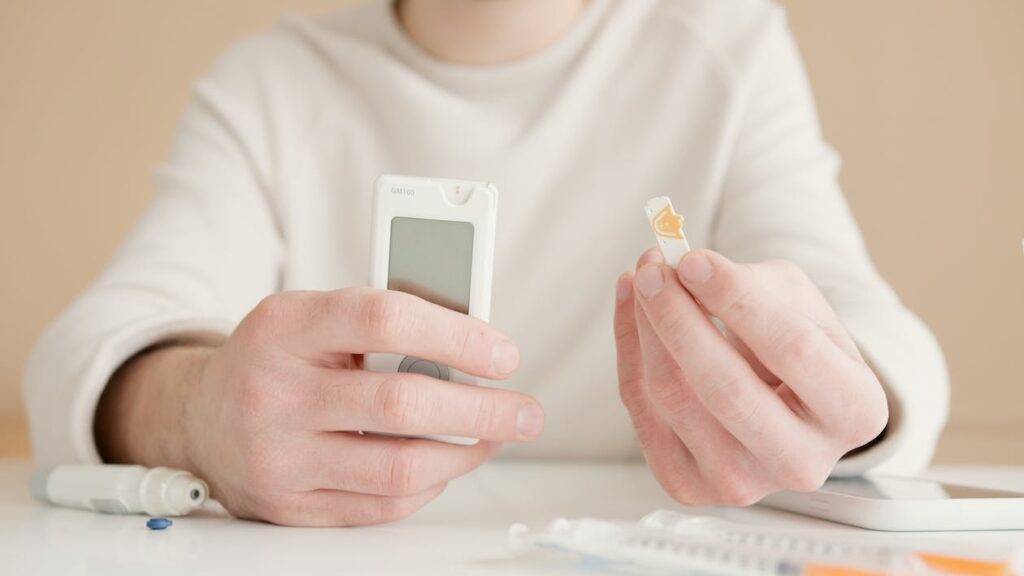AI Future Impact of Digital Health – The future is now, and it’s changing the world in ways that we didn’t expect. Future-generation medical diagnostics are just a few of the many possibilities that 2021 has in store for those who believe AI Future Impact of Digital Health should continue to be used more often than ever. This year has seen tremendous advances, with more on the horizon.
AI future impact of digital health is here to stay. It is revolutionizing the way doctors’ oncology practices, as well as patients, receive care. From diagnosis to treatment plans, it uses sophisticated algorithms created by engineers who have only learned through research. Sometimes, even more than these are needed.
This technology has a lot of potential. We can only imagine how far it will go in healthcare. From monitoring patient outcomes after treatment, such as chemotherapy or surgery, to tracking trends in health based on the data collected so far.

Healthcare: Why AI future impact of digital health is Important
We need more doctors to ensure our health and decrease disease incidence. There need to be more doctors to meet all the needs of patients. This can lead to some patients being unable to access their care as fast or conveniently as they would like.
Good news! The good news? These smartphones, which can detect vital signs (heart rate) and have sensors that can detect them, can now do double duty. They can be used not only for medical purposes but also for healthcare purposes like monitoring blood sugar levels during diabetes treatment.
The pandemic has exacerbated the situation. Hospital beds are filled with COVID patients, while people with other illnesses and those with chronic conditions end up at a. unfortunately, today’s society is not able to access healthcare. This leads to a vicious circle where patients most need medical care to become more severe. What is the result? Because there needs to be more space, people wait longer before getting seen.
With AI-based services such as chatbots or telehealth, affordable digital care is now at your fingertips.
Remote Patient Monitoring (RPM) is one of the most innovative and cutting-edge practices in recent years. Remote Patient Monitoring (RPM) is a practice that uses sensors to record patient data and then send it back to a practitioner for diagnosis remotely. This can reduce the pressure on both sides, which could prove crucial in managing chronic conditions.
These technologies are more critical during a pandemic. Lockdowns and social distancing rules increase the need for security and information about patients’ conditions. However, these technologies can still benefit people diagnosed with this disease or death. They won’t be able to tolerate crowds, making it easier for everyone else.
What AI future impact of digital health looks like in the Healthcare Arena

Artificial intelligence is enabling the medical profession to make great strides described by EduTechBuddy and BizzTechInfo. AI is enabling breakthroughs in diagnosis and treatment that were previously unimaginable. These innovations will continue to improve our understanding of how AI can help patients in different situations.
Prioritization is faster and easier.
AI can help simplify complicated cases and match patients with experts who can best meet their needs. This is especially true in complex cases involving multiple factors, such as the urgency or type required of treatment.
AI-powered medical staff scheduling software, powered by IBM-powered, bearable Artificial Intelligence, will allow doctors to see what they need and how long each case might take depending on its expected complexity level.
Improved Support for Patients with Oncology

AI future impact of digital health tools are starting to replace doctors who used to do the same tasks manually. These tools can help doctors diagnose and assess cancerous cells. They also give patients the information they need to make an accurate report, giving them more time to start treatment.
Better Diagnostics
Analyzing data manually can be time-consuming and human error is a constant risk factor.
AI future impact of digital health has helped women avoid being misdiagnosed with breast cancer. It can be diagnosed up to 30 times faster than ever before and with a higher level of accuracy.
Artificial intelligence advances will enable faster and more accurate diagnosis of injuries and diseases. These AI tools are not limited to interpreting what a doctor inputs into an app, chatbot, or system driven by phrases that someone else has used before (as currently possible) but draw on vast data sets such as clinical data to determine the best treatment for you.
Healthcare is changing. AI future impact of digital health allows doctors to diagnose patients faster than ever before and can start treatment sooner to save more lives.
Analyzing blood sugar levels

A prolonged high blood sugar level could cause health issues and harm essential organs, including the nervous system, major organs, and eyes. Therefore, analyzing blood sugar levels is essential for people with diabetes. Finger pricking has been the primary method of testing blood sugar levels for several years. However, finger pricking isn’t always easy, and the patient may overlook checking the blood sugar level on a particular day. Wearable technology and AI are set to make it easier for people with the disease.
One example of a wearable AI device is the Glu Care system. Users can wear the device in the region of their body that is the most convenient for them. The device continuously monitors the wearer’s blood sugar levels and uses AI to detect the moment when blood sugar levels fall or rise to alert the wearer. Doctors can then use the information they gather to make decisions about the patient’s treatment.
Training and research
California Biomedical Research Association reports that drugs discovered in research laboratories across America and the world take an average of 12 years from their inception to patients’ throats. This is approximately US$359 Million. AI future impact of digital health could streamline agents or bots, which can communicate directly with scientist computers via SMS instead of humans. This would reduce expenses and save time.
Patients with chronic illnesses who are suffering from it can receive better treatment.

Complex chronic illnesses often have a mix of primary and secondary symptoms that require specialist support. Without the help of AI future impact of digital health systems, clinicians can be overwhelmed by managing chronic illnesses. AI future impact of digital health systems allow them to coordinate care plans between different providers. This allows for better coordination over extended periods and leads to healthier lives.
- Sports Betting Website Development – Analytics and Insights - July 13, 2024
- Why Regular best automobile detailing services Is a Must for Car Owners - May 15, 2024
- Catalog Printing – Businesses Have Just Got Better with Wholesale - October 5, 2023



Post Your Thoughts